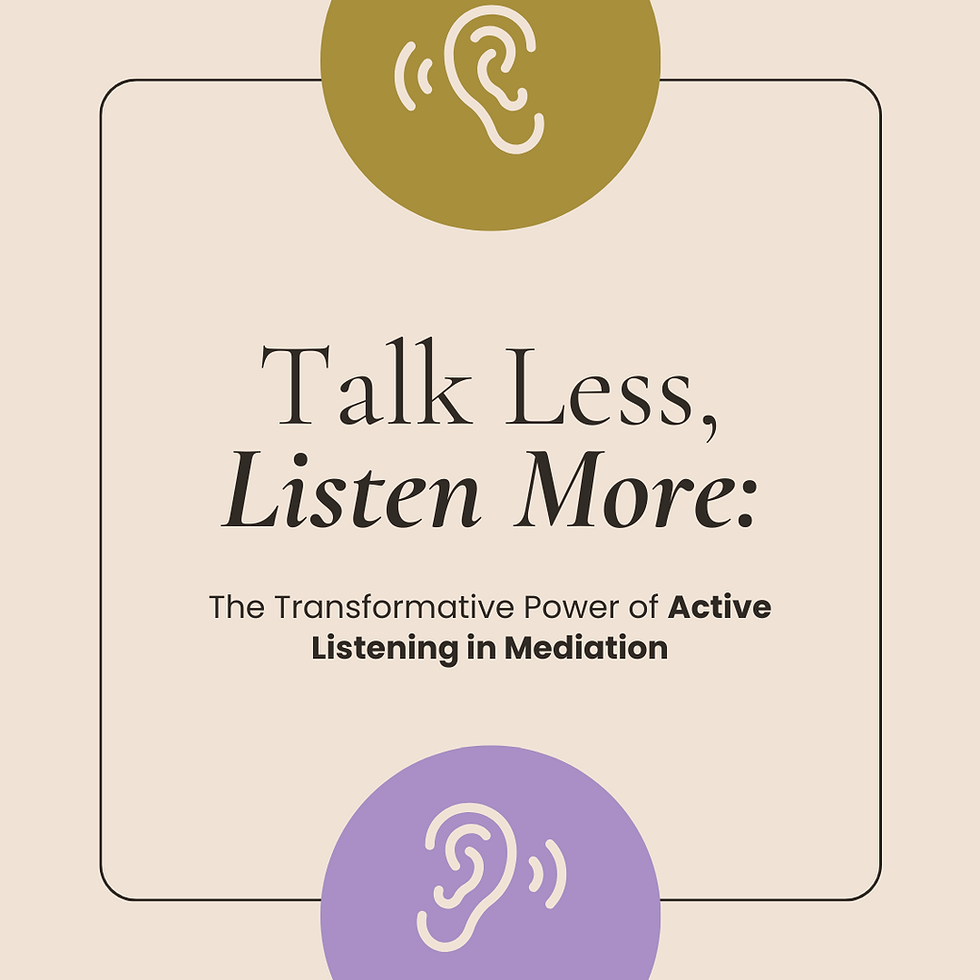Beyond Positions: How Interest-Based Negotiation Creates Real Resolution
- Jana de Waal

- Apr 14, 2025
- 2 min read
Family law mediation is rarely about simple logistics. More often, it’s about deep-rooted needs, fears, and emotions that exist below the surface of each party’s “position.” And when parties come in demanding what they want—without understanding or expressing why they want it—conflict often escalates.
That’s where interest-based negotiation becomes a game-changer.
Unlike positional bargaining, which tends to polarize people, interest-based negotiation digs deeper. It asks: What do you really need? What matters most to you? What’s driving this conflict? When mediators help parties shift from rigid positions to shared interests, everything starts to change.
Positions vs. Interests: What’s the Difference?
A position is what someone says they want.
“I want full custody.”
“I’m not paying a cent in spousal support.”
“I want the house, period.”
An interest is the underlying reason or motivation behind that want.
“I want to make sure the kids have stability and don’t switch homes constantly.”
“I’m scared I won’t be able to support myself if I have to pay support.”
“That house represents safety and familiarity during this difficult transition.”
Positions divide. Interests reveal common ground.
Uncovering Interests: A Mediator’s Superpower
One of the most valuable roles a mediator plays is to help parties reframe their language—and their thinking. This means listening carefully for the emotion and meaning underneath someone’s position and reflecting it back in a constructive way.
For example:
❌ “He’s a terrible dad. I want sole custody.”
✅ “I want the children to be with someone who is reliable and emotionally available. I’m concerned about his consistency.”
❌ “She doesn’t deserve spousal support.”
✅ “I’m concerned that if I pay what she’s asking, I won’t be able to afford my own rent or bills.”
When parties feel heard and respected, and when their deeper needs are acknowledged, they are much more likely to soften their positions and start problem-solving collaboratively.
Shared Interests = Creative Solutions
Here’s the best part: people in conflict often have more in common than they think.
In family law cases, shared interests frequently include:
The wellbeing of the children
Financial stability for both parties
Maintaining peace and routine
Protecting emotional or physical safety
Preserving relationships with extended family
Once these shared interests are on the table, the mediator can guide the parties toward creative solutions that address both sides' needs—not just their demands.
From Conflict to Collaboration
Interest-based negotiation doesn’t mean everyone walks away getting exactly what they want. But it does mean that the solutions reached are more durable, more respectful, and more human. They’re based on understanding, not aggression. And that matters—especially when families are involved.
Helping parties uncover and express their true interests is one of the most important ways a mediator can guide them toward equanimity—that “just right” middle ground where real resolution can be reached.




Comments